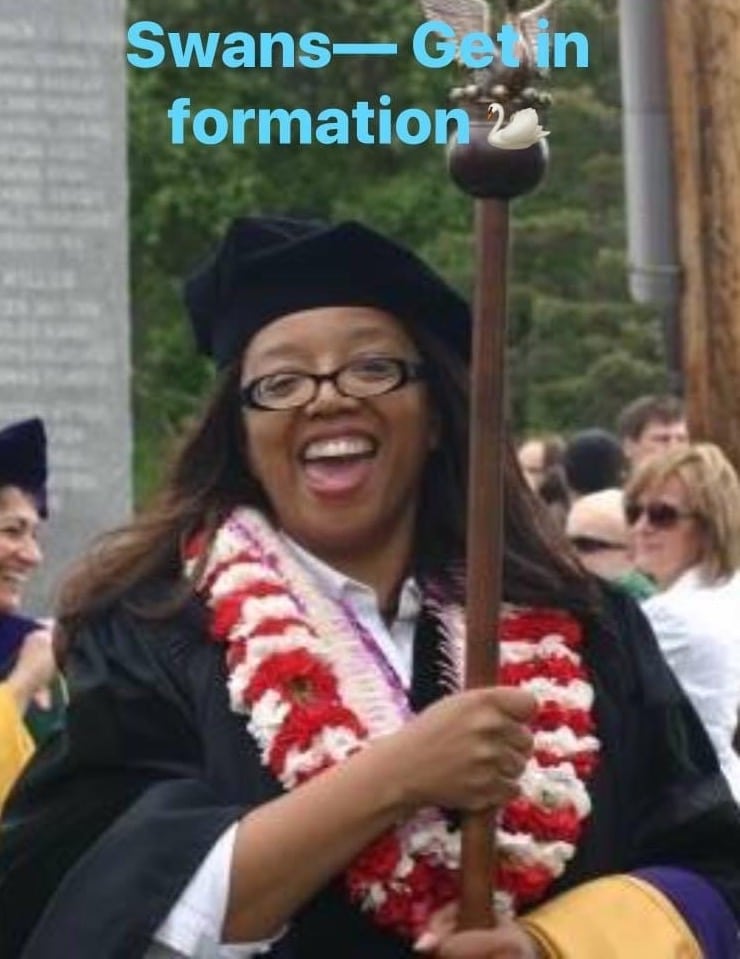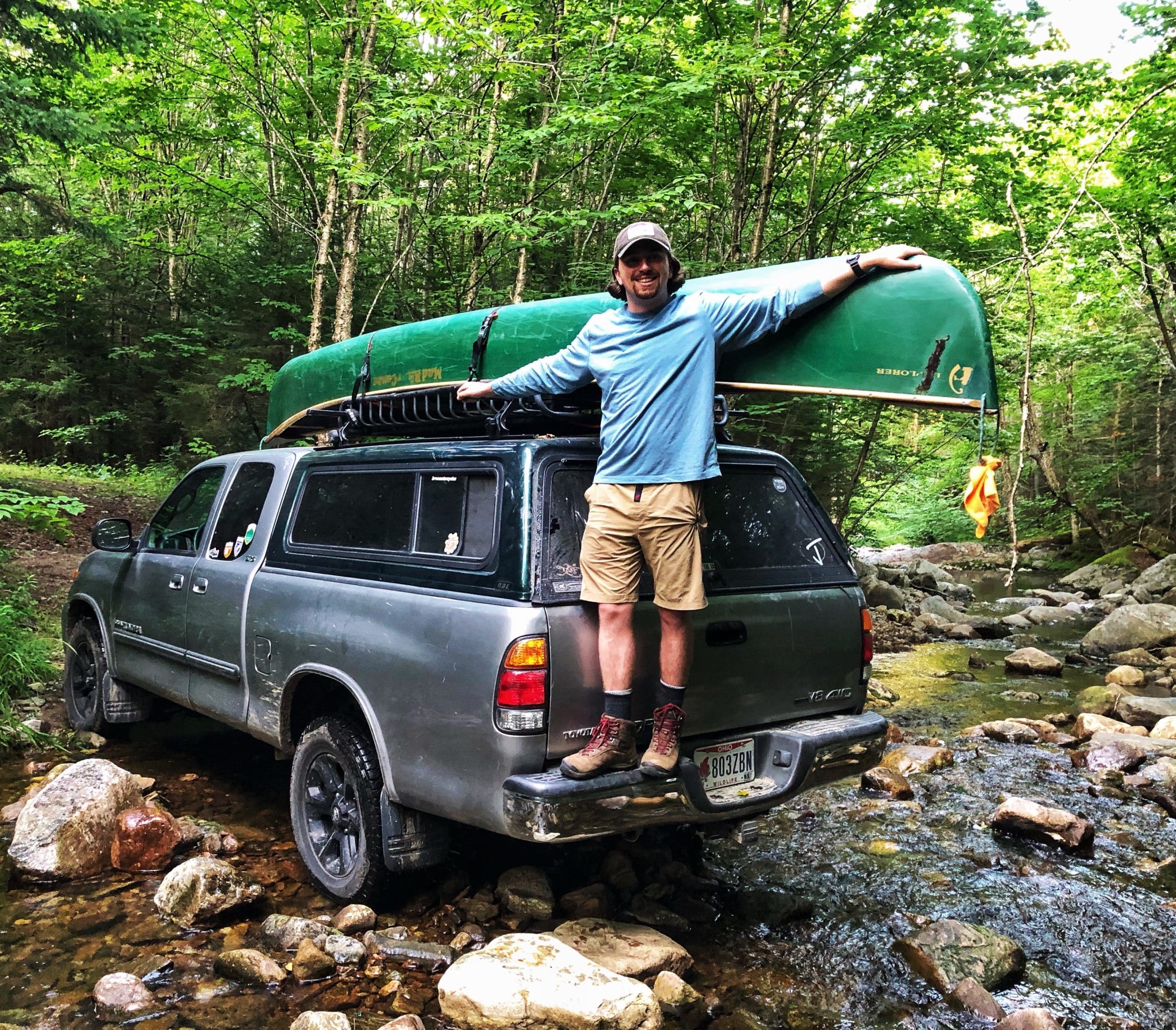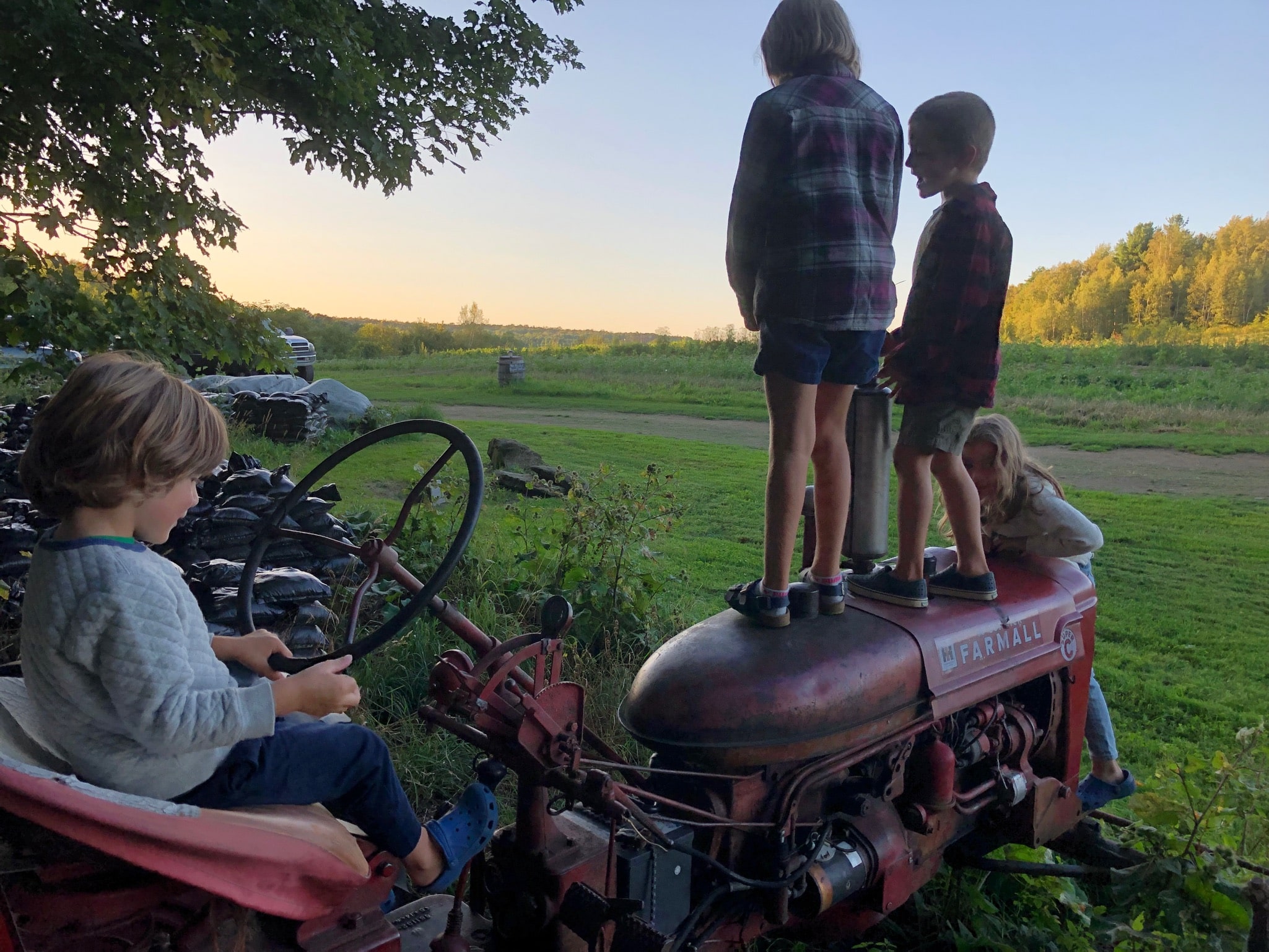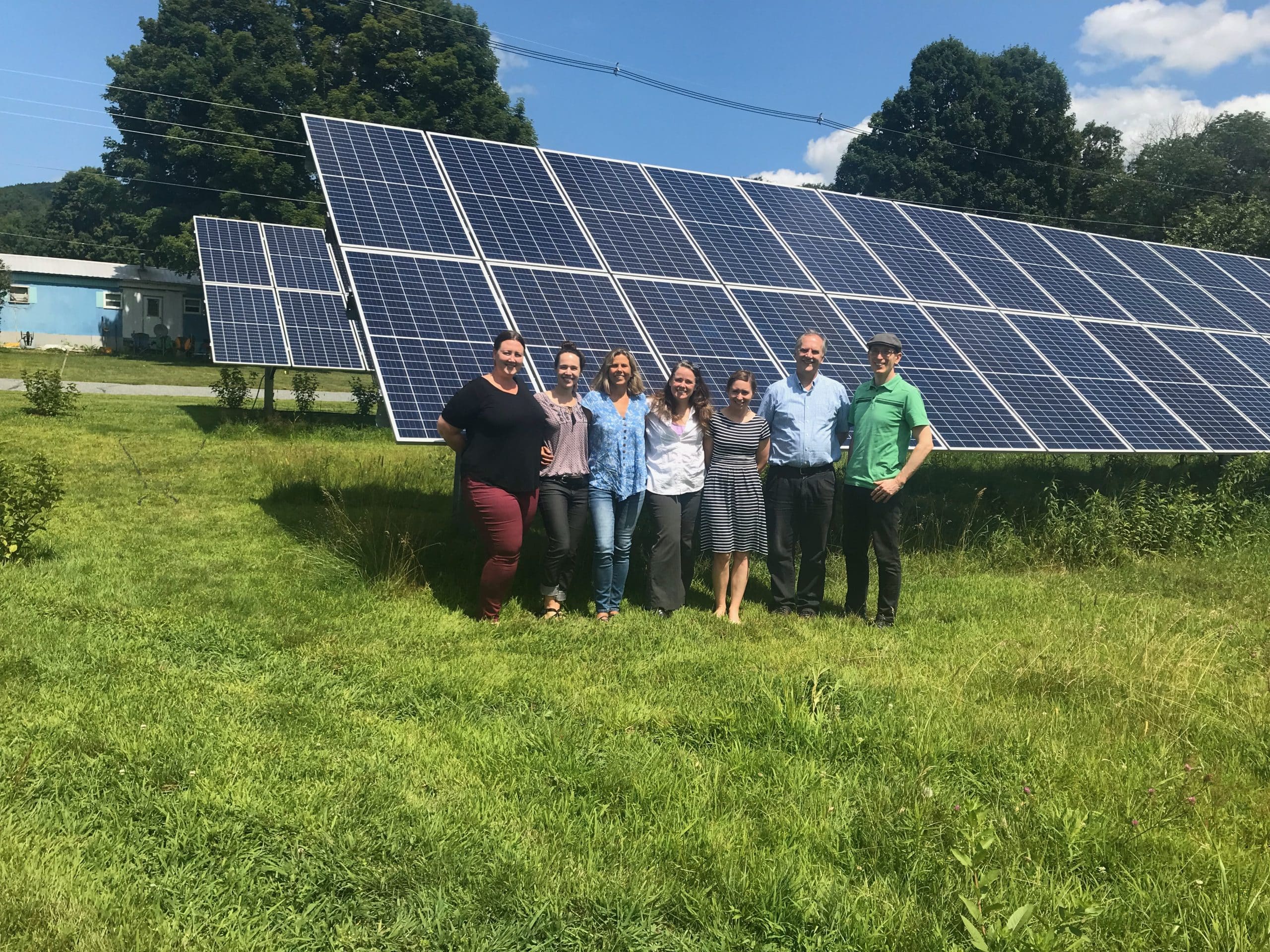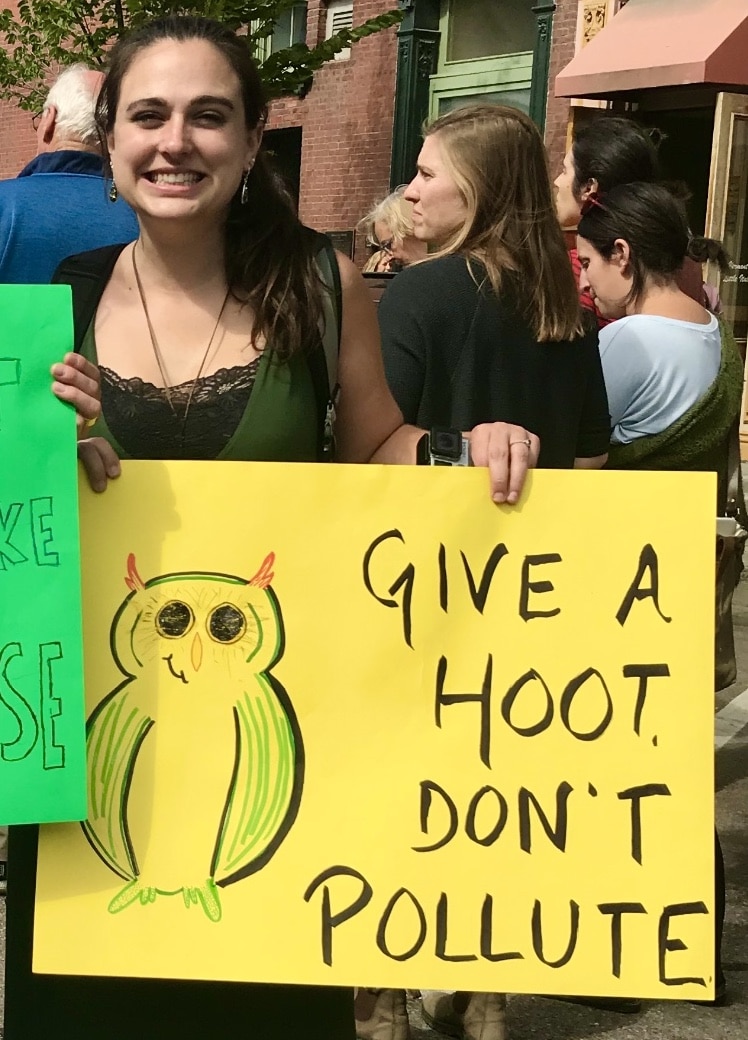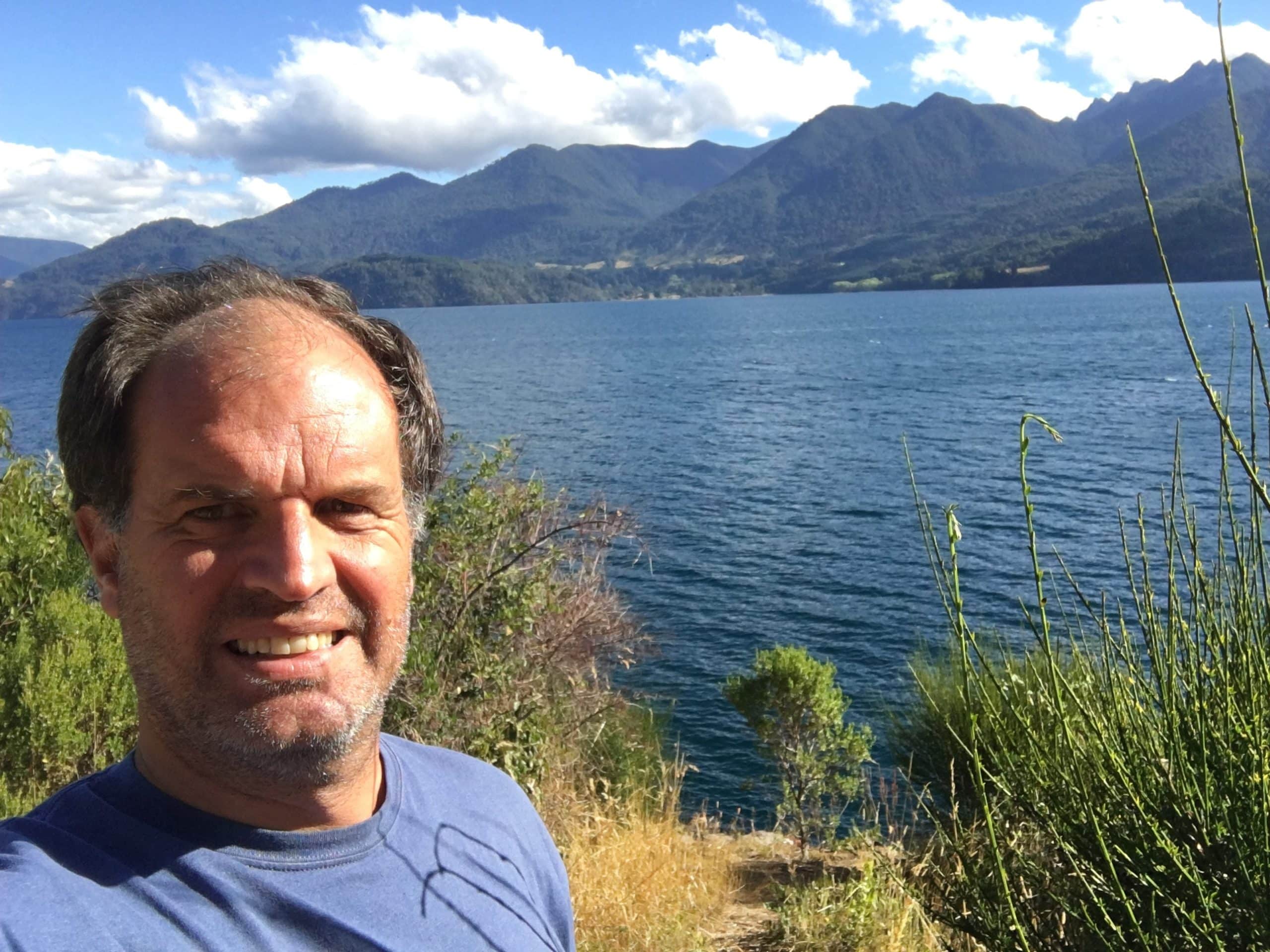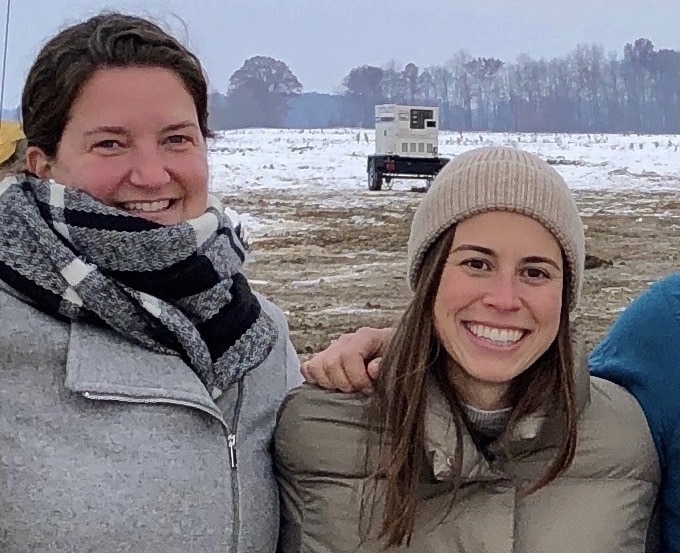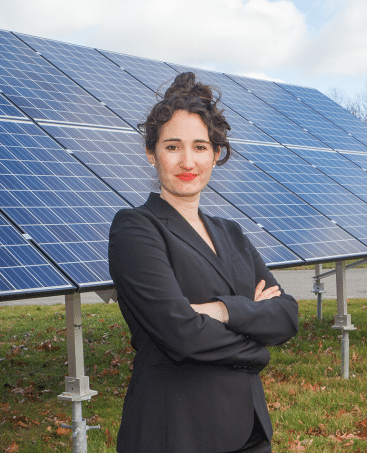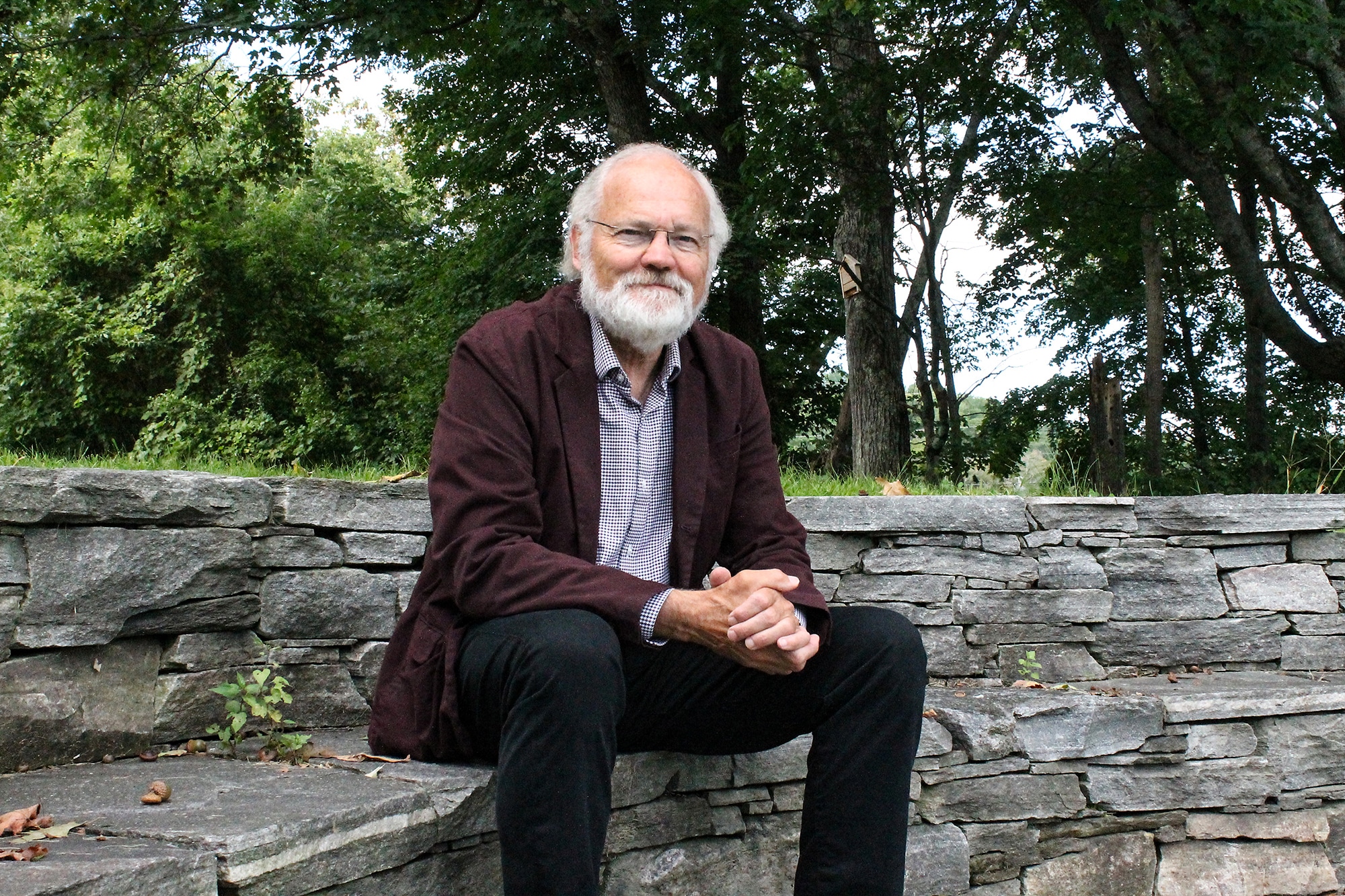April 22, 2020
Vermont Law School students, alumni, and faculty share tips for incremental changes that make a difference.
Since Vermont Law School was founded in 1972 — just two years after the very first Earth Day — the school has shaped countless changemakers through a steadfast commitment to environmental law. On Earth Day’s 50th anniversary, VLS continues to yield outsized impact on the environmental movement.
“VLS is a place where ideas become action,” said current student Erika Gerstenberger ’21. “From the seemingly small (like our reusable dishware program) to the challenging and aspirational (like the Green New Deal or green constitutional amendments), VLS community members work every day to better Mother Earth.”
This Earth Day, we reached out to some of the many VLS students, alumni, and faculty working daily to protect the environment, and asked them to share their advice for honoring the holiday all year long.
Reach out to your elected officials.
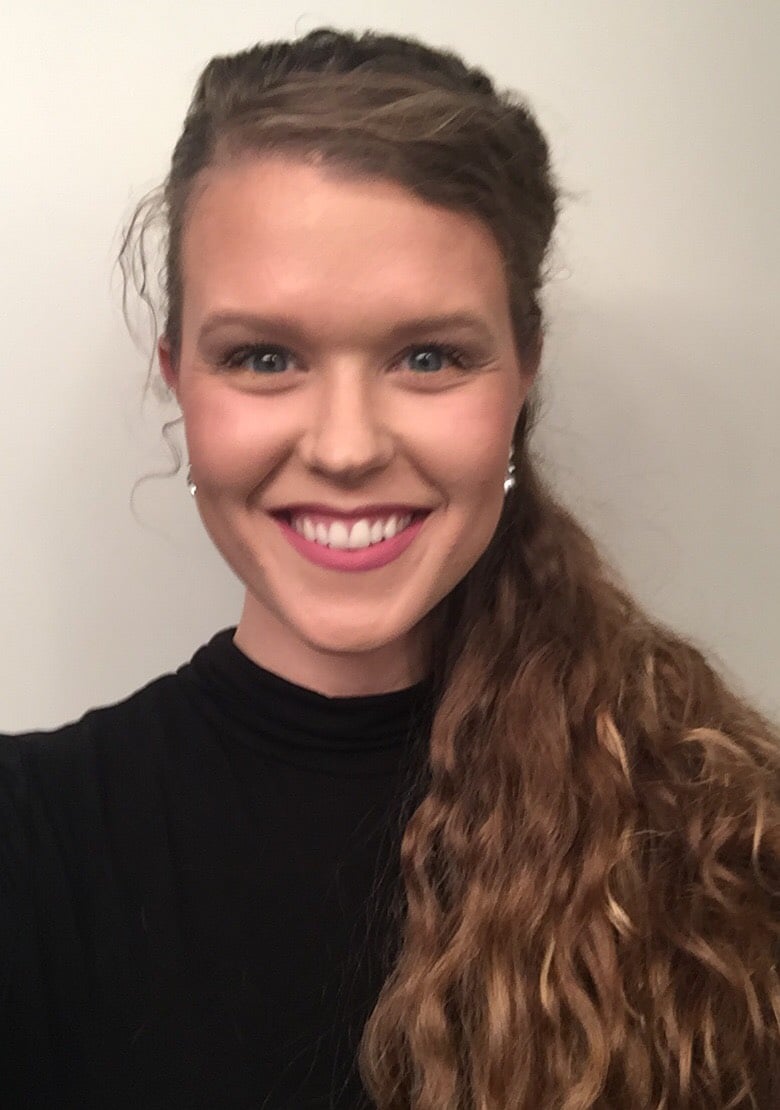
Katie Thomas JD/MELP’13 works for Vermont Senator Bernie Sanders, managing his work on both the Senate Environment and Energy Committees. She spends her days tracking the latest science, bills, regulations, and the good work happening all over Vermont to help clean air and water and fight climate change.
Katie’s advice: “I’m vegan, I try to minimize plastic use, and I don’t own a car—but I’m always careful not to encourage people to think too much about us, as individuals, as the main source of the problem. Giant corporations have spent tens of millions of dollars to buy politicians and agency heads to pass laws that give them the ability to pollute away while hiding or confusing the public about the science. So, you can take some time during work days to reach out to your elected officials to make sure they know you want them to do what’s best for the environment.”
Speak out for those who lack a voice in the public sphere.
Tracey Lewis JD’09 is a senior researcher and U.S. policy analyst at 350.org. Working alongside fellow alumna Tamara Toles O’Laughlin JD/MELP’09 (350.org’s North America director), Lewis focuses on building a new, more equitable low-carbon economy and keeping fossil fuels in the ground.
Tracey’s advice: “Speak up and speak out for those living in frontline communities who face exposure to pollution, toxins, and lack access to clean water. As we help others, we help ourselves thrive in a more just and livable planet.
Also, have you thought about planting bee-friendly flowers and plants in your yard? See if your town or city has a tree planting program, and if not, lead the way and create one!”
put your money where your values are.
VLS professor Jonathan Rosenbloom focuses his research on how local governments can fight back against climate change. He co-directs the Sustainable Development Code, a model land use code designed to provide local governments with the best sustainability practices in land use.
Professor Rosenbloom’s advice: “Support businesses making sustainable products. Here are two favorites: The first is a toilet paper company called “Who Gives a Crap?” It’s a nonprofit that provides toilet paper made from recycled paper or bamboo and donates half of its profits to increase sanitation and new toilets in developing nations. And their name and advertisements are awesome. My t-shirt is from ‘Two Blind Brothers’ who are ‘in business to cure blindness.’ They donate 100% of their profits to cure blindness. The shirt is made from 2/3 bamboo.”
get outside.
W. Cooper Hayes JD’21 spends his days working to expand his legal knowledge and analyze the intersection between legal theory, sustainability, and reality. “I’m fortunate to be working surrounded by VLS’s enthusiastic community that encourages dialogue and the development of creative solutions for the issues facing our planet,” he said.
Cooper’s advice: “Get outside. It is the best way to appreciate the environment around you. It is important to nurture the respect and curiosity for the natural world that form lasting bonds with the incredibly complex ecology that surrounds us. The more we make the environment a part of our daily routine, the more prepared we’ll be to protect it when it is threatened.”
set an example for the next generation.
As director of VLS’s Center for Agriculture and Food Systems (CAFS), Laurie Beyranevand JD’03 trains law and policy students to develop solutions for a more sustainable and just food system. She’s also a mom to Grace (6) and Arlo (5).
Professor Beyranevand’s advice: “Cultivate environmental stewardship early and often. Pictured are my kids, Grace and Arlo, at Feast and Field in Barnard last summer. We had our CSA there for a bunch of years before we moved, and have brought the kids to the on-farm market and celebration each week in summer since they were both babies.”
Go Electric.
Kevin Jones (second-to-right) directs VLS’s Institute for Energy and the Environment, where he leads the Smart Grid Project and the Energy Clinic. He has focused his career on seeking solutions to America’s energy and environmental policy challenges.
Professor Jones’ advice: “Amory Lovins’ words that ‘as crucial and as ubiquitous as it has already become, electricity is poised for a profound leap in importance’ could not be truer on Earth Day 2020. We now find electric vehicles with all-wheel drive, and super-efficient electric pumps that heat and cool our homes, heat our water, and even dry our clothes. Combined with increasingly affordable solar on our roofs and electric batteries in our basements, electricity is not only ‘the vital root system that sustains our economy’ but it is doing so in an increasingly lower-carbon manner, and with the promise of energy resilience during otherwise troubled times.”
cut back on single-use plastics.
Passionate about protecting wetlands and the majestic frog, Erika Gerstenberger JD’21 hopes to someday work for the NYS Office of the Attorney General, where she interned last summer. At VLS she serves as secretary of VLS’s Environmental Law Society, co-chair of the Women’s Law Society, and 3L trustee to the Board of Trustees.
Erika’s advice: “We’ve seen an increase in the number of states banning single-use plastics. Why not move on to cutting back on some of the multi-use plastics that we really don’t need? Try storing your leftovers in a mason jar or Pyrex dish rather than plastic containers that release microplastics when they’re washed.”
ride a bike.
Alumnus Arturo Brandt LLM’03 teaches environmental law at universities in Chile and at VLS and consults in the public and private sector on climate change. He’s a pro bono advisor at the Climate Leadership Group, which promotes low-carbon economy in the private sector, and at the Environmental Law Association where he promotes laws and policies related to the environment. He also brokers environmental commodities such as carbon credits and biomass, encouraging use in the private sector to reduce carbon footprints.
Arturo’s advice: “Beyond the fact that helping the environment is a moral and smart decision on a daily basis, it’s also financially sound. For example, I bike to work every day. I arrive to the office relaxed, it helps me to stay in shape and keep my weight, and I do not emit CO2 emissions. It’s much faster than a car or public transportation (15 minutes versus 30 on average), and since I don’t have to rent a parking spot nearby, this routine has paid the bike’s cost in less than two years.”
Vote!
As General Counsel for a utility-scale solar company called Ranger Power, Danielle Changala JD/MELP’13 leads the group’s legal and regulatory strategies. Before joining Ranger Power, she was an associate at a prominent Vermont law firm, where she focused her practice on helping renewable energy clients navigate through Vermont’s regulatory landscape to site, permit, and develop clean energy projects. She now works alongside fellow VLS alumna Carter Scott JD/MSEL’06 (to the left of Danielle in this photo). “We get to spend each day working to develop new solar generation across the U.S.,” Danielle said.
Danielle’s advice: “Support policies and candidates that prioritize clean energy.”
always be evolving.
Environmental Law Center Director and Associate Dean Jenny Rushlow has wanted to protect the environment for as long as she can remember—but the motivations behind her path into environmental law, and eventually into academia, continuously shifted. “As a child, it seemed so important to help nature. I sensed that it was threatened, and felt a pull to do something about it,” Rushlow said. “As I got old enough to understand where my food comes from, my outrage fueled a passion for animal rights. As I grew more, I came to understand that racial bias can turn even something as basic as the environment into a weapon. Now, my fears about climate change and what it means for my young son occupy my mind.”
Dean Rushlow’s advice: “Environmentalism is all of the above, and the lens you see it through is so tied to your own life experience. I try every day to meet our students where they’re at in this journey, and provide them the foundation to find where they can be most impactful and contribute to making change for the better.”
remember there’s more work to do.
VLS Professor Patrick Parenteau was in law school on the very first Earth Day in 1970. Later, he’d go on to work with Senator Gaylord Nelson, the “father of Earth Day,” on important environmental legislation including the Alaska Lands Bill. For Parenteau—who has lobbied, taught, written, spoken, and administered environmental programs at state and federal levels—Earth Day is truly every day. “I’ve dedicated my almost-50-year career to protecting the environment and all life on earth,” he says.
Professor Parenteau’s advice: “I keep trying to reduce my footprint by giving up red meat (tough thing for a Nebraska boy to do), banning plastic bags and straws, driving a hybrid (I wish it was a Tesla), heating with homegrown wood, and buying shares in our community solar project. But there’s lots more to do and not time to waste with the climate beast bearing down on us. As the great writer and poet Wendell Berry says, ‘The earth is what we all have in common.'”
